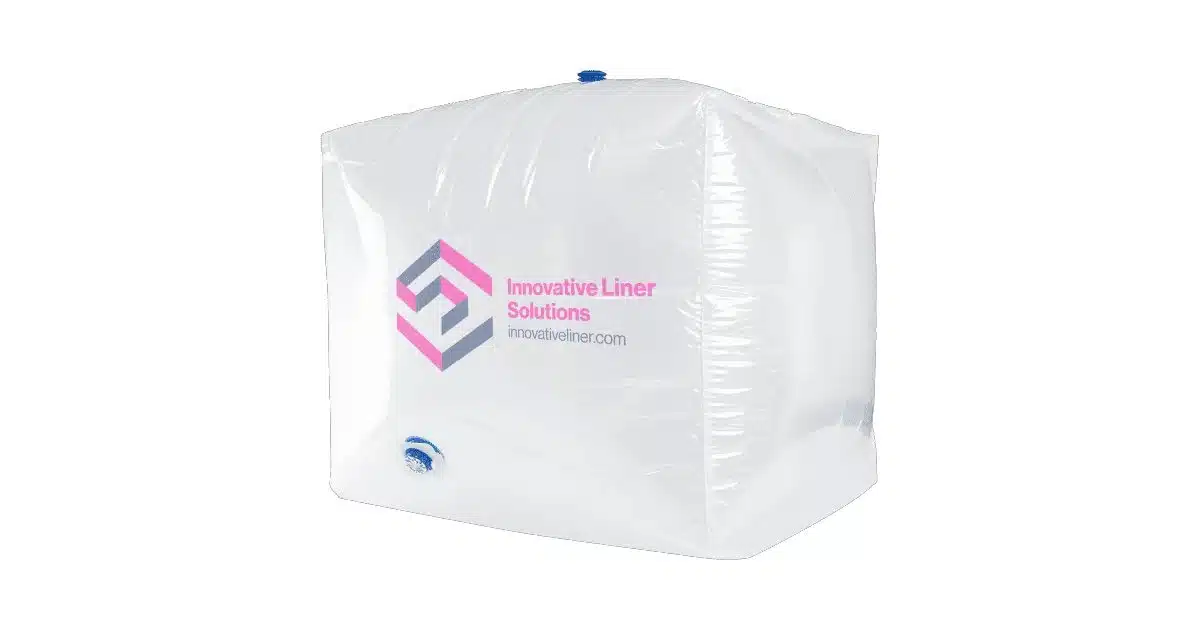Intermediate Bulk Containers (IBCs) are one of the most versatile solutions for storing and transporting liquids. To protect the contents and extend the life of containers, liners are used as an added safeguard. Among the many options, the polypropylene container liner has become a popular choice across industries. A common question arises: can these liners be used safely for both food products and chemicals? The answer depends on the specific application, but polypropylene liners are engineered to handle the requirements of both sectors when paired with the right IBC packaging materials and accessories.
Why Polypropylene Liners Are Versatile
Polypropylene is known for its durability, chemical resistance, and ability to provide a clean barrier between liquids and container walls. This makes it suitable for industries that demand both safety and versatility. As a protective container liner, it prevents contamination, supports hygienic handling, and minimizes the risk of product degradation during storage or transit.
When used in food applications, a polypropylene liner protects edible liquids like oils, syrups, or juices from contamination. In chemical applications, the same liner provides resistance to corrosive or hazardous liquids, ensuring that the container does not react with the product. This dual capability allows businesses to standardize their packaging approach while maintaining product integrity.
The Role of IBC Packaging Materials
While liners play the central role in preventing contamination, they work best as part of a system that includes other IBC packaging materials. Dunnage boards, base pads, and top lids all contribute to protecting the liner and maintaining the safety of the liquid inside. These bulk liquid packaging components stabilize the container, reduce pressure points, and ensure that the liner remains intact through handling, transport, and storage.
Food-Grade Applications for Polypropylene Liners
Food and beverage producers require packaging solutions that meet strict standards for cleanliness and product safety. Polypropylene liners are commonly used because they provide a non-reactive surface that keeps liquids free from outside contamination. By creating a sterile barrier, these liners eliminate the risk of flavor changes, spoilage, or exposure to container residues. Combined with IBC container lids and open top liners, they form a complete protective system that supports compliance with industry safety requirements.
Chemical Applications for Polypropylene Liners
Chemicals require packaging solutions that can withstand corrosive properties and maintain integrity under varying conditions. Polypropylene liners are highly resistant to many acids, bases, and solvents, making them a reliable choice for transporting chemical products. IBC base pads provide added protection by cushioning containers, while IBC dunnage boards help maintain liner stability. Together, these elements make liners suitable for challenging environments without compromising safety.
How Protective Container Liners Improve Bulk Liquid Shipping
Beyond their compatibility with both food and chemicals, polypropylene liners contribute to more efficient shipping practices. They prevent leaks, reduce the need for container sterilization, and simplify changeovers between different products. This is especially valuable for companies handling diverse shipments, as it minimizes downtime and lowers operational costs. To learn more about these advantages, explore this resource on How Protective Container Liners Improve Bulk Liquid Shipping.
Bulk Liquid Packaging Components That Support Liners
Protective liners are most effective when paired with other IBC protective packaging supplies. Each component plays a role in ensuring the container system remains strong and contamination-free:
-
IBC dunnage boards distribute weight and reduce stress on the liner.
-
IBC base pads protect the bottom of the container from wear and damage.
-
IBC top lids and IBC container lids seal the unit, preventing dirt or airborne contaminants from entering.
-
Open top liners simplify installation and removal, especially when working with thick or viscous liquids.
By combining these components, businesses create a system that ensures safe storage and transport for both food products and chemical liquids.
Benefits of Using One Liner Type Across Industries
Standardizing on polypropylene liners can create efficiency for companies that manage diverse product lines. By using the same protective container liner for multiple applications, businesses can reduce inventory complexity, lower procurement costs, and simplify training for staff handling IBCs. This approach also reduces the risk of errors, since teams become familiar with a consistent packaging system.
Sustainability Considerations
Polypropylene liners not only protect products but also contribute to more sustainable operations. Because they reduce the need for cleaning and sterilization, liners help conserve water, energy, and cleaning agents. They also extend the usable life of IBCs, making them a practical choice for companies looking to lower their environmental footprint while maintaining operational efficiency.
Guidance for Choosing the Right Solution
While polypropylene liners can be used for both food and chemicals, selecting the right configuration requires an understanding of product properties, handling needs, and regulatory standards. Some chemicals may require additional testing for compatibility, while food products may need liners certified for specific safety standards. For detailed insights into making the best choice, businesses can reference the Comprehensive Guide To IBC Packaging Materials And Components.
Why Partner with Innovative Liner Solutions
Selecting and implementing the right packaging materials requires experience and expertise. Innovative Liner Solutions provides a full range of polypropylene container liner options, along with supporting IBC protective packaging supplies such as dunnage boards, base pads, top lids, and container lids. Their team ensures that each solution is tailored to meet the specific needs of industries handling food, chemicals, or both, offering safe, efficient, and sustainable options for bulk liquid packaging.
Conclusion
Polypropylene liners are an effective solution for both food and chemical applications. Their chemical resistance, hygienic surface, and compatibility with a wide range of IBC packaging materials make them a versatile choice for companies seeking reliable bulk liquid packaging solutions. By combining these liners with accessories like dunnage boards, base pads, and container lids, businesses can protect their products while streamlining operations across industries.
For expert guidance on choosing polypropylene liners and other IBC protective packaging supplies, contact Innovative Liner Solutions today at (815) 963-9525.


